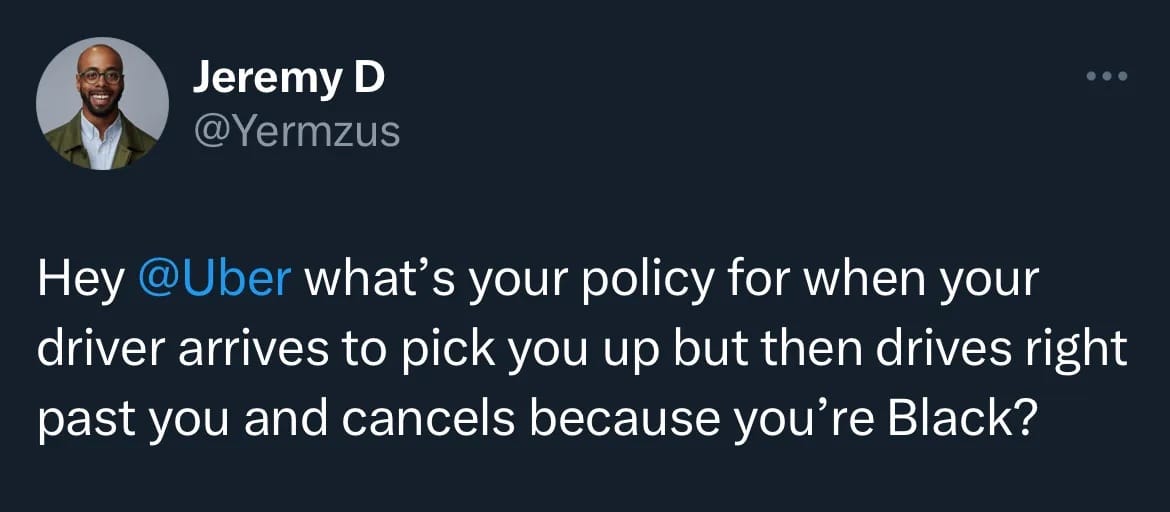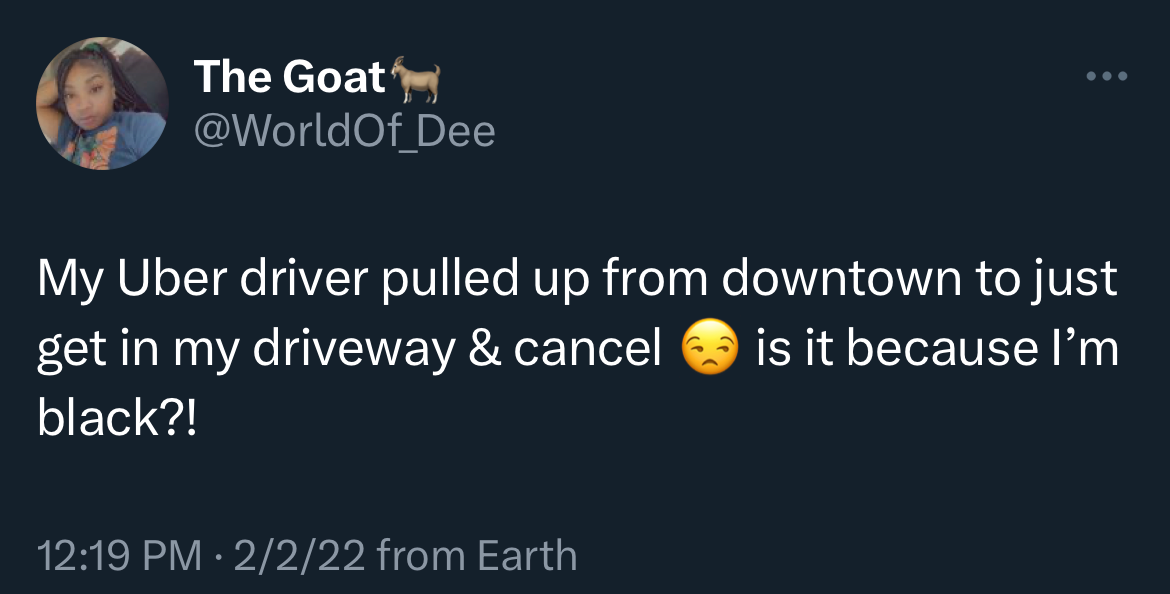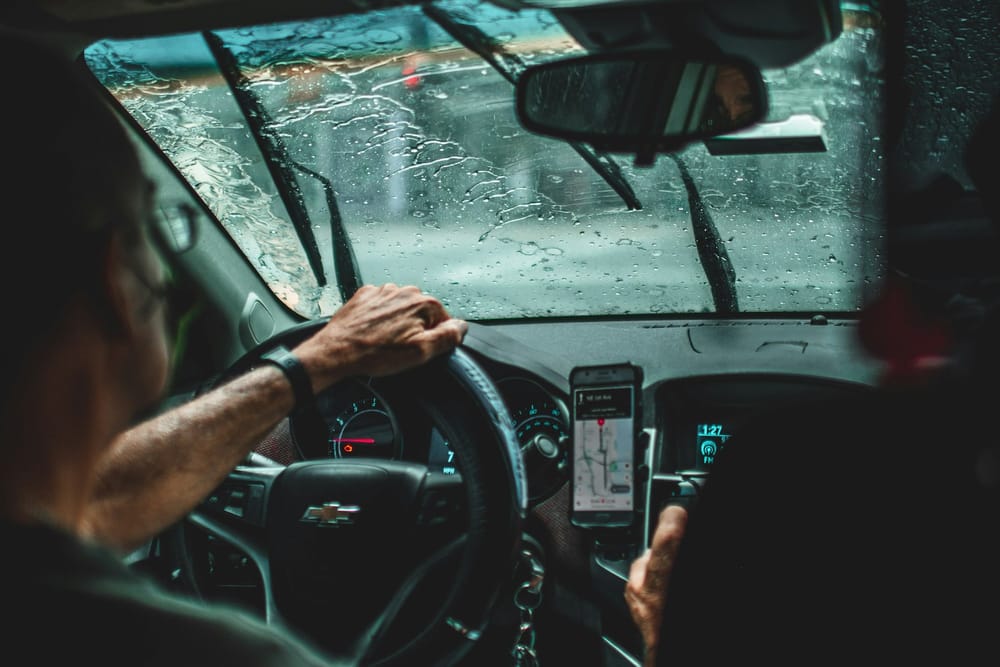I recently returned home from traveling overseas. A moment I cherished because my skin was able to breathe.
I’ve never felt this feeling back home — the ability for my melanin to be free from the confines — the resistance — the bondage — the surveillance — the control — and the fear provided by our American society.

Yet, not even over a week back home, I am reminded of the violence, the invisibility and hypervisibility, and the constraints on my melanin.
I was returned back to my Black body.
As I waited for my Uber driver, I see from the app that he is only one minute away. In anticipation of his arrival, I walk towards the curb, like you used to when hailing a cab. As the silver Hyundai drives near, I move forward, expecting the driver to pull over. But he doesn’t. He keeps driving, turns the corner, and cancels my ride.
As I share this story, there will be those who will try to invalidate my experience — but their invalidation is not recognized in what is my lived embodied experience.
A recent study found that your Uber driver is twice as likely to cancel if you’re Black.
Astonished, upset, angry, and sad about the experience that just occurred to me — I am reminded that many other Black riders with Uber have shared similar accounts:



I’m an avid Uber rider with a 4.96 rating, but the collective unconscious bias of the world was wielded against my racialized body.
Related: How Racism Found a Home in Pumpkin Spice Latte Culture
Although, for a brief moment, my skin could breathe on an island in the Mediterranean, no longer suffocated, standing on that curb, I was returned to my Black body — reminded of the historical racial schema that plagues the imaginary of society.
No longer outside the borders, I found myself marked by difference — pathologically othered.
Standing there, my body a site of exposure, my skin suffocated, seen as a site of avoidance.
Through the ride-sharing app, my body was given back to me, obscured, deformed, and made into an ontological problem.
Although, for just a brief moment, my skin was able to breathe, yet, it was returned back to me, phenomenologically racialized, as the driver pulled away.
The past that I could briefly escape was no longer at a distance.
As I gleaned at the map in the Uber application, waiting for my next driver, I could not help but feel the imagery and metaphor of the closed maps of possibilities due to my Black skin.
This post originally appeared on Medium and is edited and republished with author's permission. Read more of Dr. Jeremy Divinity's work on Medium.
